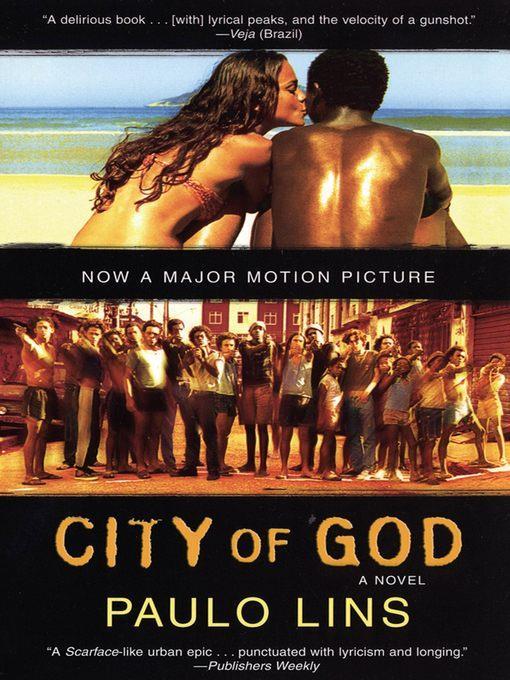
City of God
A Novel
- اطلاعات
- نقد و بررسی
- دیدگاه کاربران
نقد و بررسی

August 7, 2006
Lins's 1997 fiction debut—the source of the 2002 film published in English for the first time—chronicles two generations over three decades in the infamous Rio de Janeiro City of God, "a neo-slum of concrete, brimming dealer-doorways, sinister-silences and cries of despair." From the slum's creation in the early 1960s for flood victims, through the rise of disco and cocaine in the 1970s, to the horrific gang wars of the 1980s, Lins traces the rise and fall of myriad, often teenaged gangsters for whom guns, girls and drugs are the tools of power. While the film traces the divergent paths of two childhood friends, the novel rushes from vignette to vignette, with an ever-changing cast of characters with names like "Good Life," "Beelzebub" and "Hellraiser." Years, and pages, pass in a haze of smoking, drinking, snorting lines of cocaine, dancing sambas, swearing and planning the next big score. Guns dispense justice; the price for disrespect, whether to a spouse, a friend or the favela, is torture or death. Lins, who grew up in the City, lets the horror speak for itself. He serves up a Scarface
-like urban epic, bursting with encyclopedic, graphic descriptions of violence, punctuated with lyricism and longing.

November 1, 2006
After being adapted in 2002 for the screen as "City of God", this 1997 novel of Brazil's wretched City of God housing project is finally available in English. Unlike the film, which follows the lives of two childhood friends, the novel is a sprawling epic of gang life in the shantytowns of Rio de Janeiro with a cast of hundreds, mostly Afro-Brazilians, who have names like Carrots, Russian Mouse, Two-Wheeler, Sparrow, and Night Owl and engage in an endless round of drinking, smoking, and robbery. Otavio is so short and scrawny he can hardly handle the weight of a pistol. Hellraiser's father is a drunk, his mother's a pro in the Red Light District, and, worst of all, his brother's a faggot. Knockout rationalizes that killing a member of another gang isn't even a sin; it's doing the locals a favor. Gentle, pot-smoking Rocket longs to escape this world, buy a camera with a shitload of lenses, and win photography prizes. Lins, himself a survivor of the City of God, has a knack for making vignettes of such unremitting desperation remarkably lyrical. Recommended for most collections.Jack Shreve, Allegany Coll. of Maryland, Cumberland
Copyright 2006 Library Journal, LLC Used with permission.

September 1, 2006
First published in Brazil (as " Cidade de Deus" ) in 1997 and adapted for the screen (as " City of God" ) in 2002, this translation makes the book finally available to English-reading audiences. City of God is a housing project in Rio de Janeiro, initially intended for displaced flood victims. In a kind of dreamlike reportage that covers three decades (the 1960s to the 1980s), Lins contrasts the diminishing beauty of the nearby river and jungle with the growing ugliness of the crime-plagued, poverty-stricken project. He focuses mostly on the short, chaotic lives of gangsters, though he also keeps an eye on pot-smoking Rocket (perhaps a stand-in for Lins), a more gentle soul who escapes to become a photographer. Fernando Meirelles' film was cartoonishly violent, and although the book is startlingly so, Lins shows us more, chronicling longing, lust, ambition, superstition, hope, grief, and despair. With plot devices sometimes as minimal as the dawning of a new day, " City of God" seems more like a mosaic than a novel, but it's a mosaic with unforgettably vibrant colors. (Reprinted with permission of Booklist, copyright 2006, American Library Association.)




دیدگاه کاربران